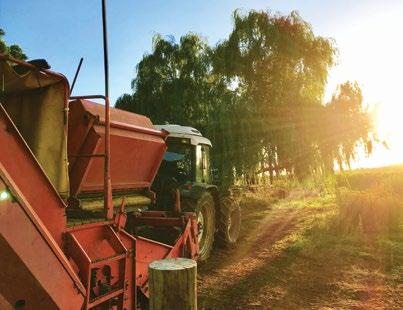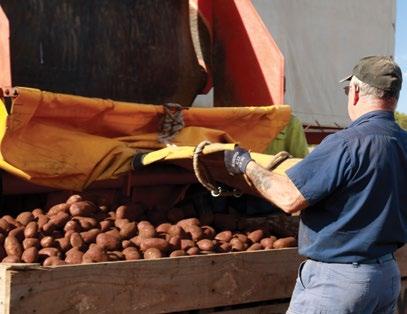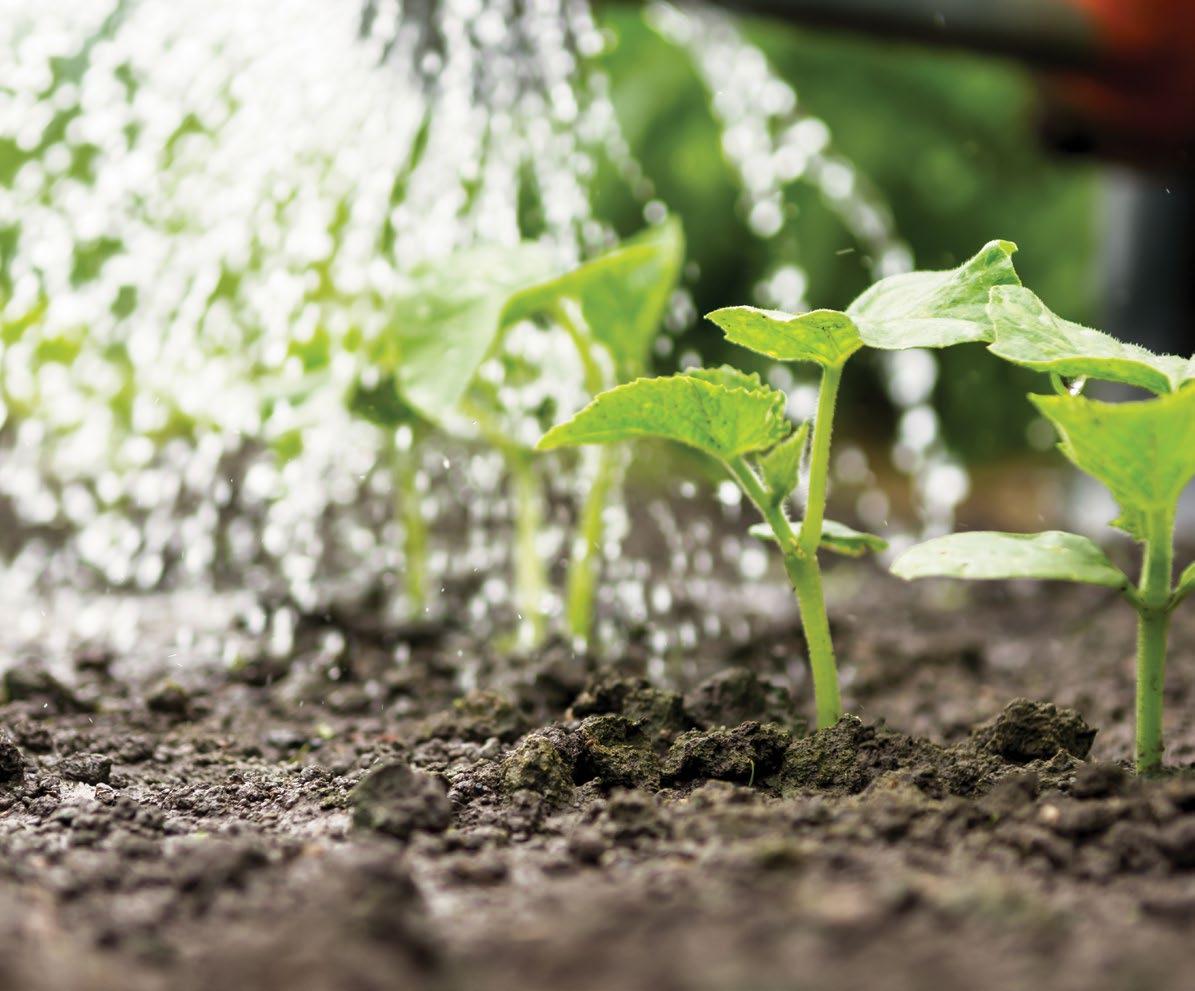
9 minute read
VegNET RDO Summer Update
Summer 2020
VegNET RDO Update
Advertisement
3 SURVEYS on the efficiency of irrigation infrastructure design as well as water and fertiliser use have shown that there is room for improvement.
a high fiving fiesta of theoretical and BY SAM GRUBIŠA practical horticulture experience. REGIONAL So, when vegetablesWA was awarded DEVELOPMENT OFFICER, the WA tenders for VegNET Phase 2 — VEGETABLESWA Regional Development (Hort Innovation)
HO…HO…HO! Fingers and Regional Development Officer (APC VPC), we were ready and raring to go. crossed for a Merry That was until we noticed…the project Christmas! remits were a little different to the last couple of years. To say this year has been challenging is an EPIC understatement. Way back in February, when the sun was shining, the birds were singing and our Regional Development is our name… but extension is still our game; the focus has just shifted sideways a little. biggest concern was Fall While we are still here to armyworm breaching our 100 per cent support the veg North Eastern border; who could have known what vegetablesWA’s extension growers of WA with all things Hort, R&D and industry was to come? Along with an international pandemic, national border closures and the Australian National Dictionary Centre naming ‘Iso’ as the word of the year…came an extension reinvention to innovation; to align with the funding contract criterion (established through their industry specific SIAP consultations) we have drawn our focus in tighter for the coming year. team.... a diverse shared background! rival Madonna. It began back in May with our first foray vegetablesWA’s extension team consists of Truyen “The Brains” Vo and me, Sam into Innovations Systems, regional scans and discussion papers. “The Brawn” Grubiša. Training and support from Sean Kenny With a diverse shared background covering scientific research, medical pathology, agronomy, trucking and good old, hands in the dirt farm work; we are and Geoff Drysdale at Rural Consulting Group, helped to guide us on our way to developing a five-year regional extension strategy and five key areas of focus by the end of August. It was during those three months of training that my respect for “The Brains” of this outfit grew exponentially. Truyen’s university degrees and years as a research scientist, gave us an edge in understanding the direction and scope of this new project approach. With his theoretical knowledge and my practical knowledge of horticulture, we were able to visualise a plan to benefit the West. Now all we had to do was get it all down on paper…this is where the grey hairs really started to sprout! We spent the next two months writing…reviewing…re-writing…and starting again! Motivated by feedback and regional visits over the years, we chose to shine the spotlight on five of the main issues affecting the industry statewide and have created the following project focuses: 1. Water and fertiliser use efficiency 2. Biosecurity 3. Quality assurance base level requirements — chemical certification 4. Pest and disease management 5. Business continuity (assisting role).
Once we managed to reign in our Once the REAG sanctioned ‘thoughts of awesomeness’ we were able recommendations were incorporated to produce a strategy and projects that and approved, we were ready to reveal we believe would not only benefit WA’s the strategic plan that was developed regional growers but were supported by for and endorsed by West Australian our own personal strengths and passion vegetable industry stakeholders. for the industry. If you are interested in finding out more As a final part of the or would like to get involved with any development process, a Regional Extension Advisory Group (REAG) was created to guide our strategic direction and assist in shaping of the above project, Truyen and I are only a phone call, text or email away. Plus, we are sick of talking to each other and would love the refreshing change of pace you’d give from Take a moment to reflect on what you have accomplished this year. the project briefs. outside “The Brains and Consisting of three diverse growers and one venerable industry representative, the level of feedback was Brawn bubble”! Ok, that’s a bit of a lie! I could listen to my mate, the scientific maven, ALL day long! invaluable in highlighting how we best While this year has come out of nowhere achieve our proposed objectives. and slapped us all unceremoniously in the face, I am finishing the year…yet again…proud to be a part of this industry. Drought…be damned! Bushfires…just bugger off!! Global pandemic…pfff, we Westies GOT THIS!!! I’m certainly not saying it was an easy year in Horticulture and (as “The Brawn”) I’ll fight anyone who says otherwise, nevertheless we made it through! As we head towards the silly season and into the great unknown, take a moment to reflect on what you have accomplished this year. Even if all you did was survive to the end, grab a beer and give yourself a freaking round of applause…you NAILED IT! May you and yours have a very Merry Christmas and a safe start to the new year! ŽIVJELI.
MORE INFORMATION
Contact Sam Grubiša, phone (08) 9486 7515 or email sam.grubisa@vegetableswa.com.au
Project brief
Chemical certification to align with industry and QA accreditation standards
Quality Assurance within a Primary/Food Production business is essential to sustainable service delivery. This has been recognised within the West Australian vegetable industry by the APC VPC, with the creation and recruitment of a Quality Assurance Coordinator (QAC).
Collaboration with Industry and the QAC has shown a lack of awareness and understanding of the significance of QA throughout the industry. One area of QA that is particularly weak, yet easily rectified by training or education, is chemical certification. • There are businesses operating without a base level QA system in place, leaving them and the wider community vulnerable to food safety issues • Recording basic operational information is often underestimated especially in the area of farm inputs • Routine machinery preparation and maintenance has been ad hoc rather that routine • Awareness of industry advances and changes are often missed due to the reliance on traditional “on farm training” rather than accredited training. Therefore, an increase in skill development and training to encourage farm best practice, knowledge of industry standards and safer production systems enables both Grower and Industry to strengthen business sustainability, profitability and affirm consumer confidence. Project deliverables: • Accepting a place on the Course Advisory Committee • Participating in nominated RTO Industry
Reference Group • Involvement in facilitating information sessions • Engagement with OH&S/WH&S initiatives • Organise chemical accreditation courses including the offer to assist ESL Growers with course translation where applicable • Support Growers with QA certification subject to market interests and suitability. The WA RDO’S are well equipped to progress the proposed deliverables such as organising information sessions and accreditation courses; and has already commenced collaboration with RTOs. Through our established networks we have an abundance of industry specialists, including the vegetablesWA Quality Assurance Coordinator and our own personal on-farm experience, to advocate, corroborate, substantiate and validate the fundamental food safety obligation the greater industry demonstrates. Fostering a culture of food quality and safety reinforces our international image of being “Clean and Green”, an image we should all aim to uphold and use to bolster our “essential services” workforce.
Project brief
Improving water and fertiliser use efficiency for vegetables farming in the Swan Coastal Plain
About 70 per cent of the vegetable industry in WA’s $490 million worth is produced in the state’s South West region under hostile growing conditions.
The soil types of this region, stretching from Gingin (100km north of Perth) to Myalup (100km south of Perth) and including the Swan Coastal Plain, are some of the most infertile in the world. With currently insufficient water allocations facing a 10 per cent cut by 2028, the vegetable growers in this region are working hard to sustainably maintain their businesses profitability. However, surveys on the efficiency of irrigation infrastructure design as well as water and fertiliser use have shown that there is room for improvement. Around 40 per cent of investigated growers applied between 20 per cent and 280 per cent above the recommended water volume, whilst 65 per cent of them spent an extra $2,000 to $15,000 over the recommended fertiliser cost. The available knowledge, information and technology, if practically applied to the growers’ established, conventional practices, including — changes in scheduling of irrigation based on crop factors and evaporation and soil moisture monitoring to confirm irrigation effectiveness, will result in more efficient vegetables businesses. The aim of this project is to help growers to constantly keep up with innovations in irrigation and fertiliser application. To achieve the aim, this elementary project within the overall VegNET extension project is designed to take grower participants through a five-step innovation adoption process: • Knowledge (expose growers to innovations in the set of Priority Regional Issues and assist them in understanding the benefits) • Persuasion (the forming of a favourable attitude to them) • Decision (commitment to adoption) • Implementation (putting innovation into use via trial and error process) • Confirmation (reinforcement of the adoption decision based on positive outcomes from it). This project is planned for five years during 2020–25 in collaboration with various stakeholders; and it is opened by the first Water Field Day in Carabooda by October 2020.
Project brief
Improving WA growers capacity in planning and implementing farm biosecurity plan
The vegetable industry in WA worth $490 million has recently been hit hard with two exotic pests incursion incidents — CGMMV in August 2016 and TPP in February 2017. The state is also under threat of Fall armyworm (FAW) which has been detected in two locations: Carnarvon and Geraldton. These incidents could cause multi million dollars losses in terms of substantial yield loss, market restriction, control and management costs to vegetable industry and to the state and the federal governments.
Biosecurity is fundamental for safeguarding valuable national agricultural resources against the threat and impacts of pests, weeds and diseases (pests). Farm biosecurity is the day-to-day, basic management of potential risks, to protect grower’s business, environment and the community, posed by plant pests and diseases entering, emerging, establishing or spreading in a vegetable farm property. Reviewed literature from both national and regional projects in this area of focus details the background, potential impact, plants affected, season of occurrence, mode of spread, and symptoms of exotic threat (carrot rust fly ) and incursion (CGMMV, TPP, FAW) to WA. Farm biosecurity plans and practice guidance are well documented, with multiple avenues for extension. However, stronger extension activity at a grassroots level is needed to facilitate wider grower adoption. The aim of this elementary project under the VegNET WA extension project, is to continue the national and state assistance with information dissemination, on-farm compliance and cultivating positive “cultural attitudes” to vegetable growers; to consolidate the State’s defenses against new and unpredictable biosecurity threats. This also aims to strengthen vegetable growers’ capacity in developing and implementing farm biosecurity plans. The potential actions of this project are designed within the theme “Evolving”. Activities such as grower visits, workshops, demonstrations will be designed to: • Increase growers’ awareness of challenges evolving over time in term of pest management • Increase growers’ awareness and preparedness for threats and risks to their businesses in relation to exotic pest incursion or incident • Increase growers’ motivation to adapt/develop specific farm biosecurity plans that suit their specific farming system. This project will last for five years from 2020 to 2024.
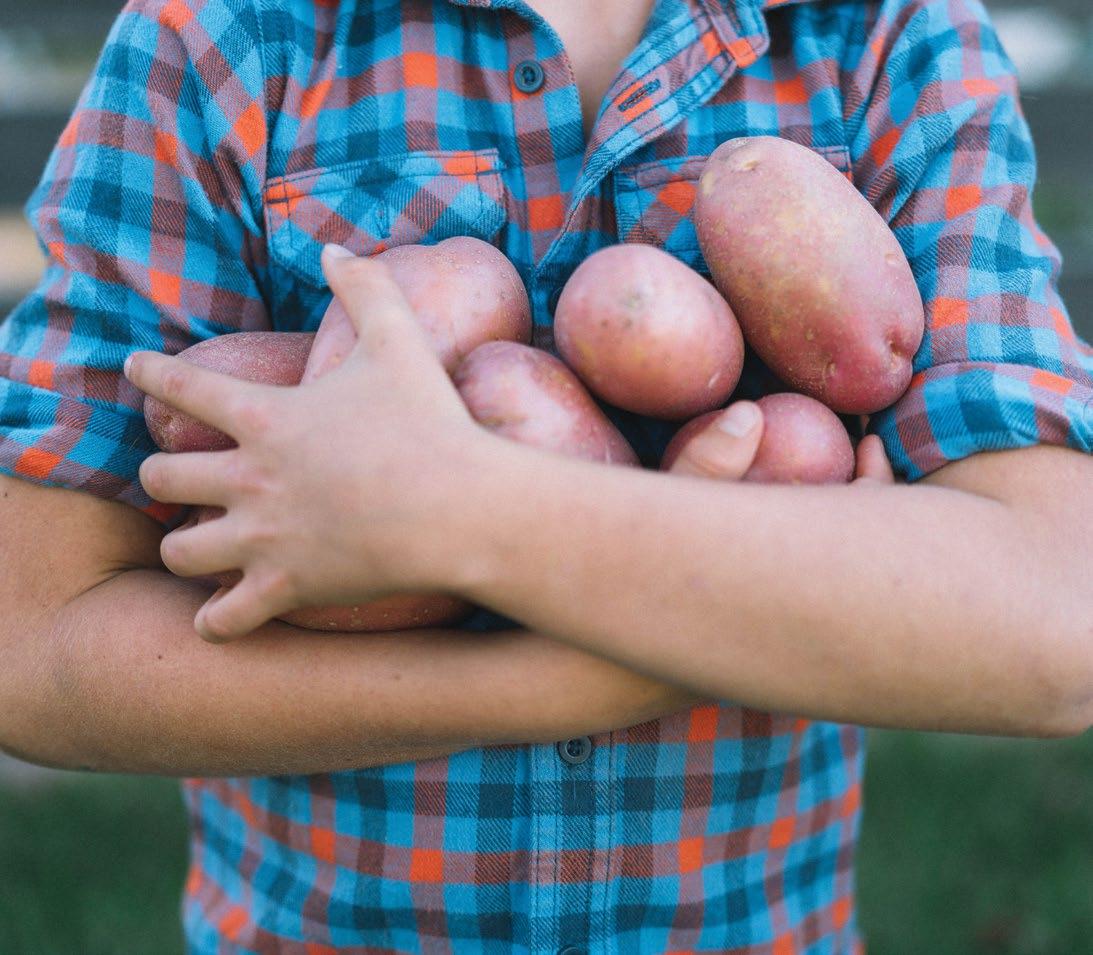
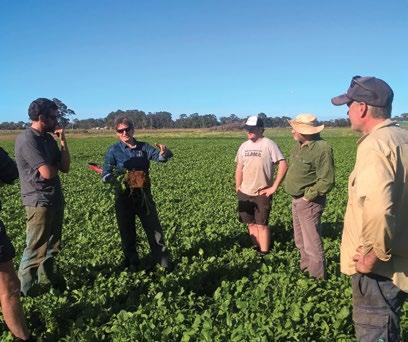
update potato
